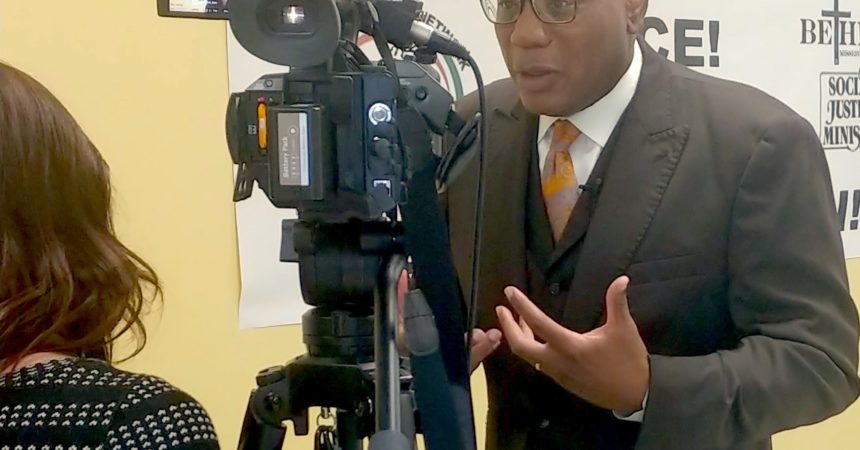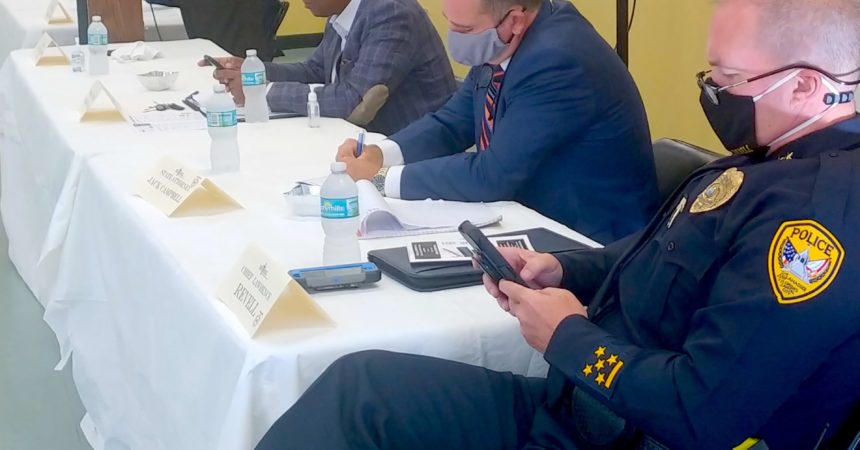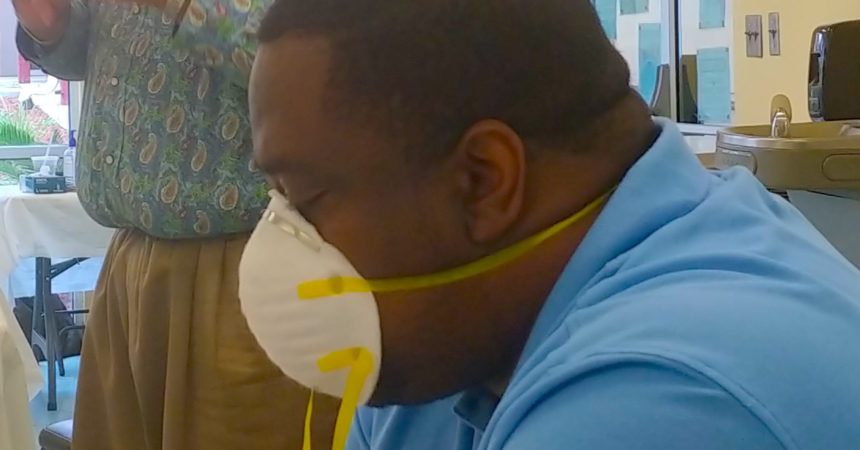Symposium panelists call for action on inequities
By St. Clair Murraine
Outlook staff writer
There was a lot of talking during almost six hours of conversation about issues haunting Black communities.
Moderators and panelists left the sessions at Bethel Family Life Center last Thursday hoping that they can now move on to put the things they discussed into action. In fact, the symposium was titled “From rhetoric to action; race, racism, reconciliation.”
The morning started with a discussion on “reimagining police and community relations” and ended with the focus on the upcoming election and “the value of voting; take your power to the poll.” In between, finances and healthcare in the disadvantaged neighborhoods took center stage.
All of the issues discussed are intertwine, said Leon County Sheriff Walt McNeil, adding that poverty, joblessness and mental health are impacting a large number of children.
He reiterated the event’s theme, saying that the next step should be action.
“I want to go from rhetoric to action,” McNeil said. “I’m hopeful that we take some action and we walk away trying to make a change in our community.”
The symposium was put on by the Social Justice Ministries at Bethel Missionary Baptist Church and the local chapter of the National Action Network. Rev. RB Holmes, pastor at Bethel and president of NAN’s Tallahassee chapter, said the COVID-19 pandemic and recent protests have shed light on the urgency to move the dialog beyond talking.
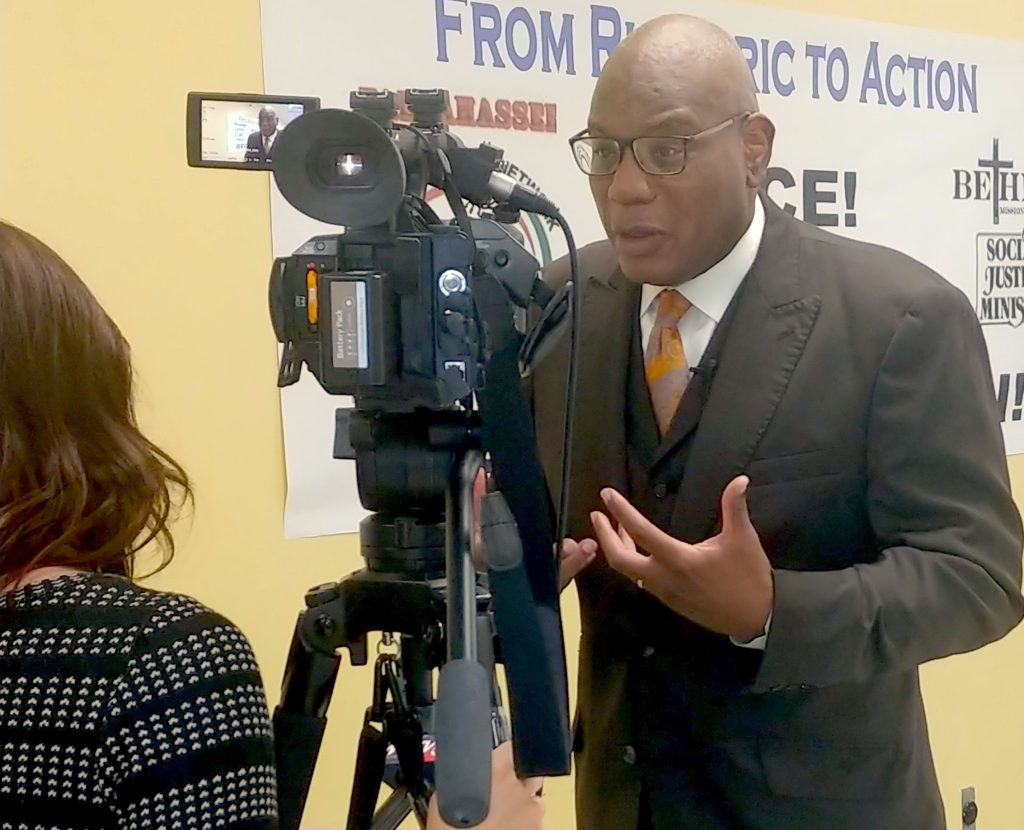
Photo by St. Clair Murraine
“We all want the same thing; a better community,” Holmes said.
“We do a lot of talking about this and that but no real solutions,” Holmes said during an interview between sessions. “We felt now is the time to bring in our stakeholders and let’s talk about an action plan.”
Overall, at least one member of each panel expressed pessimism caused by the Black community’s sense of distrust in each area – law enforcement, banking, healthcare and even the voting system.
Not surprisingly, the relationship between law enforcement and the community was an intense discussion. Greg James, pastor at Life Church International Center, was poignant about the friction between police and the Black community.
He suggested that the contentious relationship is grounded in a belief that law enforcement is behind the iniquities in some neighborhoods.
“We see these issues and automatically we say the discrimination is from law enforcement, the economic disparities are from law enforcement,” James said. “Everything falls on law enforcement.”
However, he put the onus back on the communities, saying they “need to own up to some of our responsibilities instead of blaming everything on the police.”
Law enforcement was represented on the panel by Leon County Sheriff Walt, Tallahassee Police Chief Lawrence Revell and Jack Campbell, state attorney for the Second Judicial District. Revell and Campbell have been under the microscope of protesters who have been calling for police reform in the wake of the killing of George Floyd by a former Minneapolis police officer.
Protesters have also targeted Campbell over his refusal to release officers’ names in two police-involved shootings. He, however, pleased for patience while he tries to assembly a 21-person grand jury in the midst of a pandemic.
Protesters have also called for the removal of Revell who has only been in office for seven months. Local protesters also joined the nationwide call for defunding police departments.
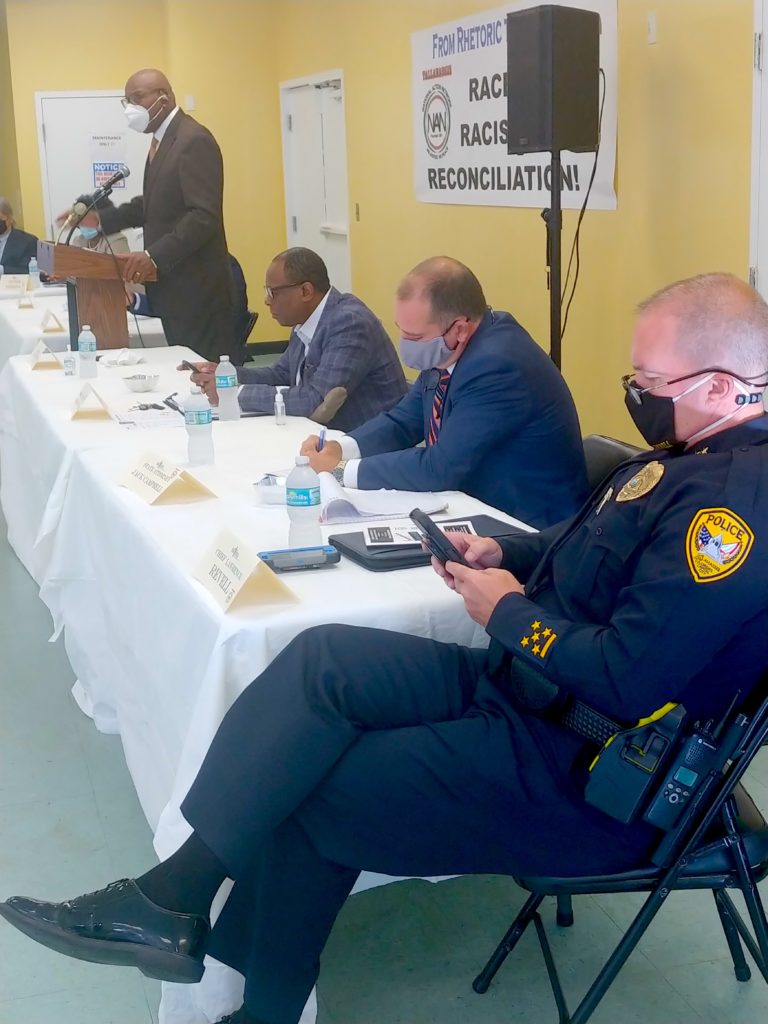
Photo by St. Clair Murraine
Holmes vehemently denounced the call for shaking up TPD.
“We have not and will not at this time ask for the resignation of the police chief nor that the sheriff be dethroned,” Holmes said. “We cannot continue to overlook what’s happening in our communities on a consistent bases.
“We do not condone police misconduct and we cannot condone Black on Black crimes.”
Campbell and Revell agreed that tensions that have led to claims of over-policing in Black communities could be relieved by focusing on building closer relationships with the people they police.
“That’s what we are trying to do at the state attorney’s office,” Campbell said. “We are trying to open up those doors. … There are opportunities for this community to come in.”
Jackie Perkins, who chairs Neighborhood safety and crime prevention committee, momentarily turned the conversation to how young people form an impression about law enforcement officers.
It begins when parents tell their children when they misbehave that “I will call the police on you,” she said.
McNeil used the story of a family to illustrate how young people – mostly in Black communities – begin a life of crime. In this instance, he said, a 24 year old who is involved in crime teaches his 14-year-old brother how to sell drugs and do other crimes.
At the same time, McNeil said, the mother has boyfriend that batters her. The 14 year old witnesses the abuse and eventually gets into life of crime that spirals out of control.
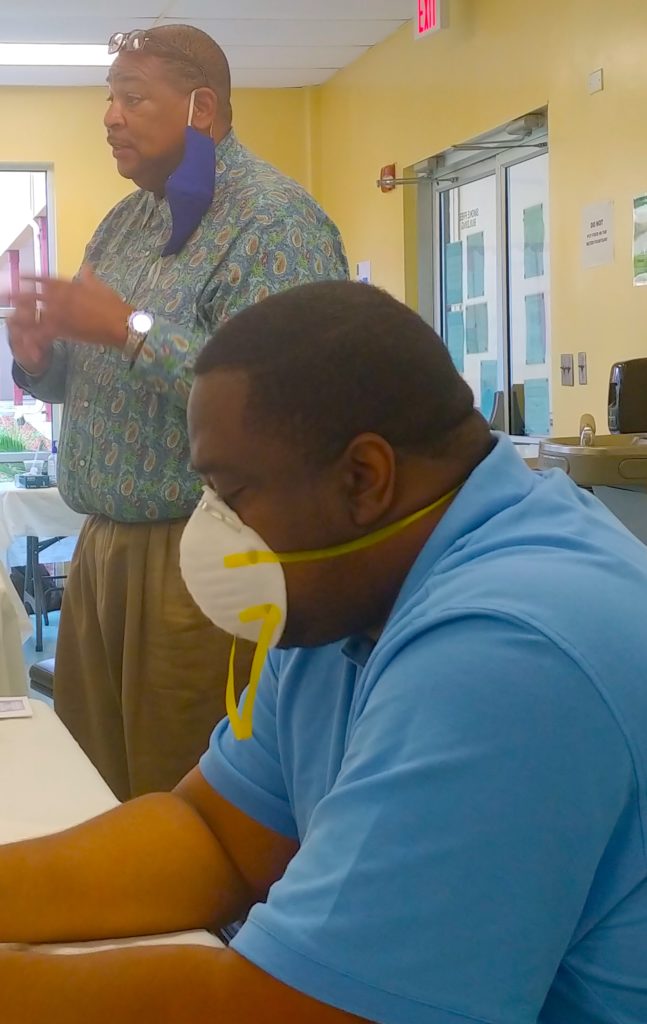
Photo by St. Clair Murraine
“You talk about posttraumatic stress from people going to the military and back,” McNeil said. “We have kids in our community who live in traumatic circumstance every day and we are doing nothing about it.”
McNeil had left the room by the time Dr. Temple Robinson, CEO of Bond Community Health Center, appealed for better communication about when someone is released from jail into the community. She was especially concerned about those with mental illness who she said are sent home with a three-month supply of medication.
In most cases, the patient can’t afford to buy medication when the free supply runs out.
Drug addiction also is one of the medical issues that disproportionately affects Blacks, said Talethia Edwards, president of Greater Bond Neighborhood Community Association. She made her point by telling the perplexing case of a mother who wanted counseling for a drug problem, but she was not willing to give up the drugs.
Edwards questioned how that case and others often “fall through the crack” in Back neighborhoods.
A lively discussion also ensued about ways to establish banking presence in Black communities and educating residents about money. Representatives from Prime Meridian and Capital City banks fielded most of the questions.
“We need your help. I think as a bank we can do better,” said William Smith, vice president of Business and Private Banking Manager at Capital City Bank.
Many of the problems in Black neighborhoods could be fixed by electing candidates that want to end the inequities, said Curtis Taylor, president of the local chapter of the Urban League.
Holding up a brochure with the names of civil rights activists who died so Blacks would have the right to vote, Taylor said the Nov. 3 election is the most pivotal.
“This election will impact us for generations,” Taylor said. “It will affect me, our children and our grandchildren. All elections are important, but this one is extremely important.
“Don’t let your friends tell you that you’re wasting your time. Don’t let your attitude that my one vote does not count stop you. Just don’t let anything stop you from voting.”
Taylor and Mark Earley, Leon County Supervisor of Election, recommended voting by mail because of uncertainty created by the pandemic.
“The problem is real and I think it’s going to grow daily as we get to the election,” Earley said. “This has been very challenging election year but I know all of our public servants are really facing some big challenges.”
Earley said his office has sent out 44,000 ballots for voting by mail and he expects that to be followed by another 15,000. Vote-by-mail ballots have to be returned to his office by 7 p.m. on Election Day, Earley said. Ballots could also be placed in drop boxes that will be at precincts during the early voting period Aug. 3-16.
Earley echoed Taylor’s sentiment on the importance of this election by saying, “Real long-term change only comes through the ballot box.”


